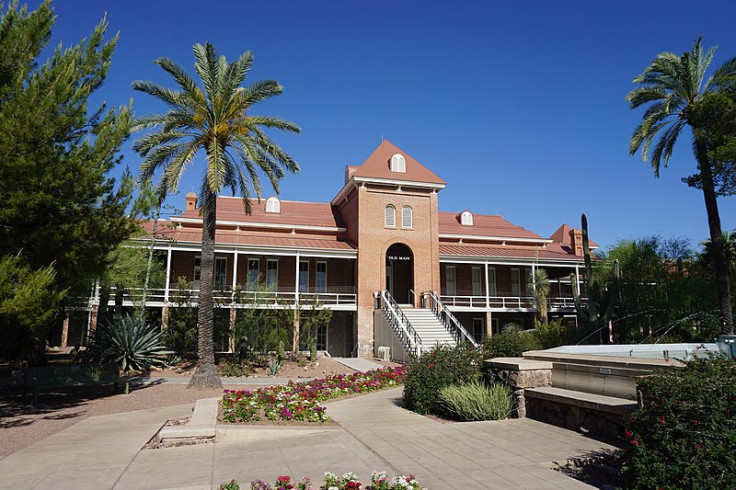
UCLA and Arizona State University have launched a new initiative "that will revolutionize advocacy and policymaking in the United States by equipping Latino leaders with cutting-edge data analysis tools and skills," the universities announced in a press release this week.
The Latino Data Hub (LDH) Action Lab, coordinated by the UCLA Latino Policy and Politics Institute (UCLA LPPI) and Arizona State University Center for Latina/os and American Politics Research (CLAPR), will focus on instructing policymakers to use U.S. Census data to inform policy decisions in critical areas such as health, education, housing, and employment.
The inaugural cohort in Tempe, Arizona, kicked off on June 25 with an in-person session for 16 advocates and community leaders, followed by a series of virtual workshops through the fall of 2024.
The LDH Action Lab curriculum was developed with the goal of changing the landscape of Latino advocacy by empowering participants through a comprehensive learning experience, and is supported in part by JPMorgan Chase and a $1 million grant the firm made to UCLA LPPI in 2022.
"Through a blend of theoretical learning and practical application, the program sharpens data analysis and visualization skills and helps participants translate these insights into practical projects that catalyze meaningful change," the release says.
Latinos are the second largest group of U.S. citizens of voting age, with an estimated 17.5 million people eligible to vote in an election cycle. They are a key component in determining the outcome for the White House, the balance of power in Congress, and various state and local elections.

This comes at the same time the U.S. Census Bureau has changed the standard for collecting data on race and ethnicity for the first time in decades. In March, the agency announced that it will now use a single question for both categories in an effort to simplify and improve data on Latinos.
The decision was applauded by some in the Hispanic community, but Afro-Latino advocacy groups expressed concern. They had already claimed to be underrepresented in the statistics, but now they believe this policy will directly "erase" them.
Proper analysis of the new census data will be key to understanding the major challenges facing this demographic in the U.S. and could have a significant impact on future policymaking, which is why the universities have come together to provide tools to equip Latino advocates.
"The Latino Data Hub Action Lab in Arizona represents a significant step forward in our efforts to empower Latino leaders nationwide," said Rodrigo Dominguez-Villegas, director of research at UCLA LPPI.
"The program provides essential tools and training and fosters a collaborative environment where leaders can share insights and strategies to magnify their impact."
Dr. Angie Bautista-Chavez, Assistant Professor in the School of Politics and Global Studies at ASU, added, "This cohort of fellows – with and alongside many other advocates and leaders – work year-round to serve and advocate on behalf of Latinx, Native, Black, Asian, Muslim, Queer, immigrant, rural, and low-income communities across Arizona."
"For me, this institutional collaboration is an example of the ways that researchers and universities can leverage their positions and resources to bring further support and investments to those working on the ground to make our cities and states – and the United States at large – more inclusive."
The inaugural cohort of the LDH Action Lab in Tempe brings together a diverse group of committed leaders from across Arizona, where Latinos make up 31% of the population, making them the second largest racial or ethnic group.
Each participant was nominated by their peers for their commitment to fostering transformative change within their communities. Here is the complete list:
- Alisha Vasquez, Communications and Accessibility Manager, Southwest Folklife Alliance
- Andrea Whiting, Co-Founder and President, Tomorrow We Vote
- Annalise Parady, Policy Coordinator, Florence Immigrant & Refugee Rights Project
- Fátima Luna, Chief Resilience Office, City of Tucson
- Genesis Arizmendi, Assistant Professor, College of Science at the University of Arizona
- Jonatan Giudice, Director of Curriculum, Strategy, Fundraising, Trans Queer Pueblo – Semilla de Liberación
- Jose Patino, VP of Education & External Affairs, Aliento
- Kate Hoffman, CEO and Founder, Earn to Learn
- Mario Montoya, Research Analyst + Coalition Consultant, Aliento
- Matthew Sotelo, Director of Leadership, Valle del Sol
- Nelda Liliana Ruiz Calles, Program Manager: Cultural Organizing, Southwest Folklife Alliance & Regeneración (CBO)
- Paul Padilla, Director of Market Intelligence, Arizona Hispanic Chamber of Commerce
- Raquel Gutierrez, CEO & Philanthropic Abolitionist, Blue Agave Partners
- Selina Barajas, Founder and Co-Owner, Luna y Sol Cafe
- Valentina Restrepo Montoya, Executive Director and CEO, Arizona Legal Women and Youth Services
- Victoria Villalba, Data & Research Manager, Instituto
© 2024 Latin Times. All rights reserved. Do not reproduce without permission.







